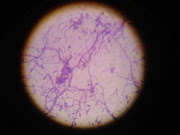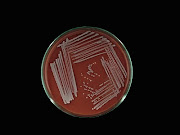Article published on BMC
Rijal
et al. Tropical Medicine and Health (2019)
47:21 https://doi.org/10.1186/s41182-019-0148-7
Micro-stratification of malaria risk in Nepal: implications for
malaria control and elimination
Komal Raj Rijal1, Bipin Adhikari2, Nabaraj
Adhikari1, Shyam Prakash Dumre3, Mayur Sharma Banjara4,
Upendra Thapa Shrestha1, Megha Raj Banjara1, Nihal Singh5,
Leonard Ortegea6, Bibek Kumar Lal7, Garib Das Thakur7
and Prakash Ghimire1,5*
1Central
Department of Microbiology, Tribhuvan University, Kirtipur, Kathmandu, Nepal
2Centre for
Tropical Medicine and Global Health, Nuffield Department of Medicine,
University of Oxford, Oxford, UK.
3Department of
Immunogenetics, Institute of Tropical Medicine (NEKKEN), Nagasaki University,
Nagasaki, Japan.
4World Health
and Research Centre, Kathmandu, Nepal.
5World
Health Organization (WHO), Country Office, Kathmandu, Nepal
6Global
Malaria Program, World Health Organization Headquarters, Geneva, Switzerland.
7Epidemiology
and Disease Control Division (EDCD), Department of Health Services, Ministry of
Health and Population, Kathmandu, Nepal.
ABSTRACT
Background: A significant reduction in malaria cases over the recent years
in Nepal has encouraged the government to adopt a goal of “malaria-free nation by
2025.” Nevertheless,
to achieve this goal, it is critical to identify the epidemiological burden of
malaria by specific regions and areas for an effective targeted intervention.
The main objective of this study was to estimate the risk of malaria at Village
Development Committee (VDC) level in Nepal based on disease, vector, parasite,
and geography.
Methods: In 2012, the micro-stratification of malaria risk was carried
out in 75 districts of Nepal. Instruments such as a questionnaire, case record
forms, and guidelines for malaria micro-stratification were developed and
pre-tested for necessary adaptations. Village Development Committee (VDC)-wise
malaria data were analyzed using exploratory statistics and were stratified by
geographical variables that contributed to the risk of malaria. To understand
the transmission risk at VDC level, overlay analysis was done using ArcGIS 10.
To ensure transparent, reproducible, and comprehensible risk assessment,
standard scoring method was selected and utilized for data from 2009 to 2011.
Thus identified, three major variables (key determinants) were given weights
(wt.) accordingly to stratification of the malaria risk (disease burden, “0.3” wt.; ecology/vector
transmission, “0.5” wt.; and
vulnerability-population movement, “0.2” wt.).
Malaria risk in a VDC was determined based on the overall scores
and classified into four categories: no risk, low risk, moderate risk, and high
risk.
Results: Analyzing the overall risk based on scoring of the total VDCs (n = 3976), 54 (1.36%),
201 (5.06%), 999 (25.13%), and 2718 (68.36%) were identified as high-,
moderate-, low-, and no-risk categories for malaria, respectively. Based on the
population statistics, 3.62%, 9.79%, 34.52%, and 52.05% of the country’s total population live
in high-risk, moderate risk, low-risk, and no-risk VDCs for malaria,
respectively. Our micro-stratification study estimates are 100,000 population
at high risk. Regional distribution showed that the majority of
the high-risk VDCs were identified in the Far- and Midwestern regions (19 and
18 VDCs) followed by Central and Western regions (10 and 7 VDCs) with no
high-risk VDCs in the Eastern region. Similarly, 77, 59, 27, 24, and 14 VDCs of
the Central, Mid-western, Western, Eastern, and Far-western regions,
respectively, were found under moderate malaria risk. Of the low-risk VDCs,
353, 215, 191, 148, and 92 were respectively from the Central, Eastern,
Western, Far-western, and Mid-western regions.
Conclusions: The current micro-stratification study provides insights on
malaria risk up to the VDC level. This will help the malaria elimination
program to target interventions at the local level thereby ensuring the best
utilization of available resources to substantially narrowed-down target areas.
With further updates and refinement, the microstratification approach can be
employed to identify the risk areas up to smaller units within the VDCs (ward
and villages).
Keywords: Malaria, Micro-stratification, Elimination, Intervention, Nepal






















3 comments:
I'm so Happy to write this article because I know it will help a lot of people who are suffering from Herpes. I am here to testify about the wonderful and most safe cure for herpes . I was positive to the deadly Virus called herpes and I lost hope completely because I was rejected even by my closest friends. I searched online to know and inquire about a cure for herpes and I saw testimony online on how Herbalist Valchy cured so many people from Herpes virus and other similar diseases. I decided to contact the great herbalist because I know that nature has the power to heal everything. I contacted him to know how he can help me and he told me never to worry that he will help me with the natural roots and herbs. After 2 days of contacting him, he told me that the cure is ready and he sent it to me via UPS and it got to me after 4 days. I used the medicine as he instructed (morning and evening ) and I got cured. it's really like a dream but I'm so happy that's the reason i decided to also add more comment of Him so that more people can be saved just like me and if you need his help, contact him via Email: herbalistvalchynaturalremedies@gmail.com or WhatsApp:+2347036769718 reachout to his website https://herbalistvalchynaturalremedies.simdif.com/
There are herbal therapies that could totally eradicate Herpes Simples Virus 2 and HIV/AIDS from the body like DOCTOR RAZOR Traditional Medicine there have been proofs and lots of testimonies to that effect. I took my time to investigate this Dr RAZOR Products on how his herbs Effectively cured my friend Peterson and his girlfriend who contracted this embarrassing Virus As well and Lupus. I was astonished which made me other for the product, I am glad to be fully cured of HIV/AIDS . Do not let doubt hinder you from being reed , he is a genuine man , Contact Dr. RAZOR via his email: drrazorherbalhome@gmail.com
Whatsapp or Call him directly on :
+2349065420442
HIS FB PAGE : https://www.facebook.com/HerbalistrazorMedicinalcure/
Please don't die in pains while Allowing doubt to make you lose this opportunity
I'm excited to share my incredible herpes journey here!
After many years of ineffective medical treatments, countless prayers, and fasting, God led me to Dr.OIHA .
I stumbled upon Dr.OLIHA African traditional herbal remedies online, and people's positive testimonials gave me hope.
I reached out to him, ordered the herbal cure, and he guided me through the process.
After 2 weeks of treatment, I was completely cured of both HSV 1 and HSV 2. Hospital tests confirmed I'm herpes free!
I retested 2 months later at another hospital, and the results were still negative!
Dr OLIHA changed my life, restoring my health and dignity. I'm forever grateful and urge anyone struggling with herpes to contact him for their own herbal cure. His remedies truly work!
Anyone can reach Dr.OLIHA via email at oliha.miraclemedicine@gmail.com
Post a Comment